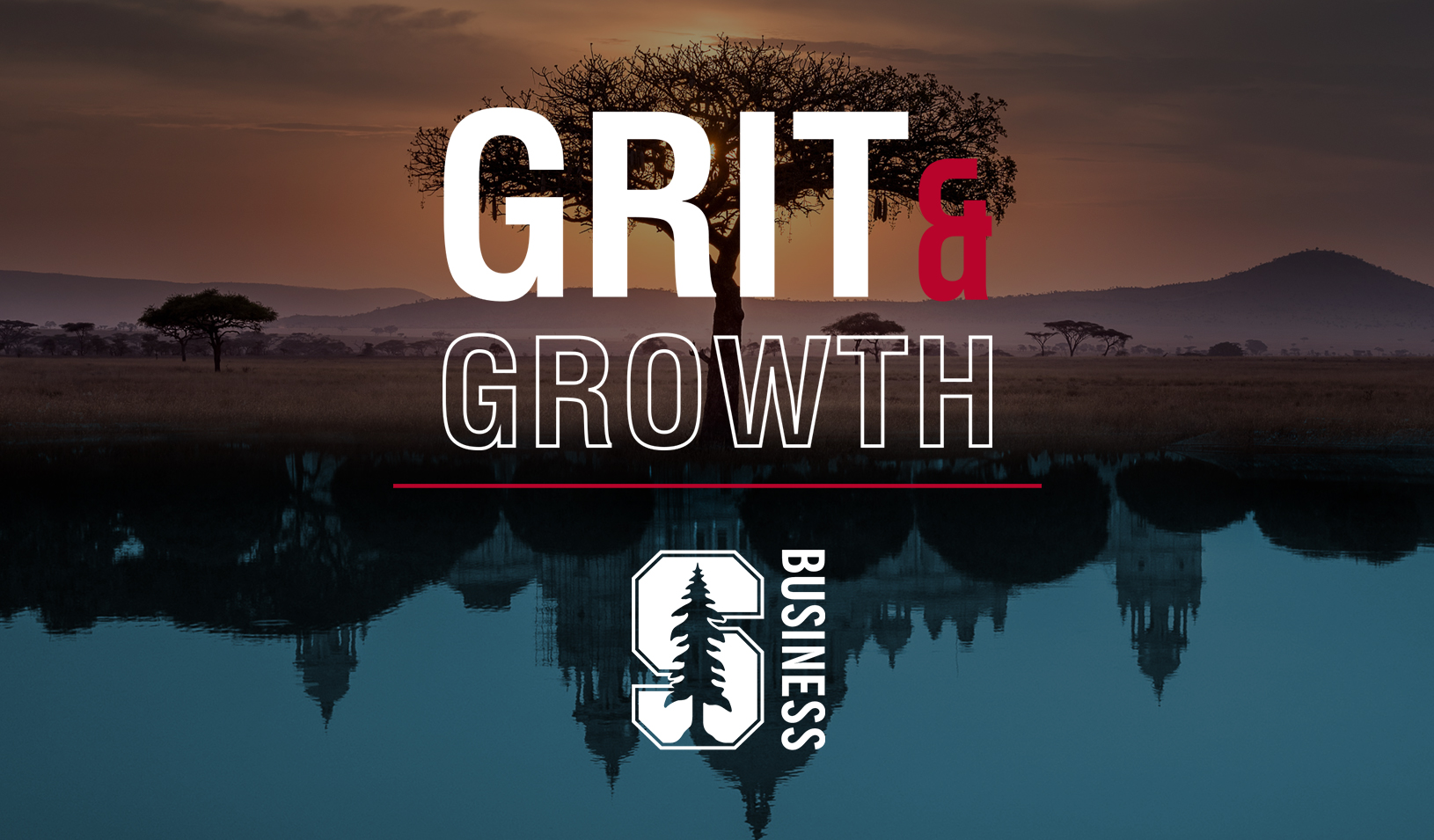Spend 20 minutes a day thinking about your career. Incremental efforts pay off. | Illustration by Silja Götz
The career path for Stanford Graduate School of Business alum Michael Melcher has been anything but linear: He earned a BA in 1986 from Harvard College, served as a foreign service officer for the U.S. government, earned JD and MBA degrees at Stanford University, worked as an attorney with Davis Polk & Wardwell and D.E. Shaw, and was even the CEO of an internet startup focusing on immigration issues. He’s also a speaker and a writer. He’s the author of The Creative Lawyer: A Practical Guide to Authentic Professional Satisfaction and has written for the New York Times, ABA Journal, and Huffington Post.
Today, he helps leaders and professionals navigate career transitions as an executive coach and a partner at the firm Next Step Partners. “When I was at Stanford GSB, I had certain ideas about what my career might be,” he says. “Some of those turned out to be true, and some did not, and some I couldn’t imagine. I’d never even heard of my career in the early ’90s. And if I had heard of it, I might not have seen a direct connection between what I was doing and what I’m doing now. It illustrates how careers change, how they develop, and how much uncertainty there is.”
Melcher recently shared with an audience at Stanford GSB his new approach to managing your career and tips for achieving greater long-term success and fulfillment.
Be a Steward for Your Career
A successful career requires occasionally taking a step back and looking at the big picture, says Melcher. He says to “think about the larger contours of what you’re doing and make that a part of your regular action.” He’s broken this process down into four categories and what questions you should ask yourself for each:
- Values: What do I like to do? What brings out my best?
- Vision: How do I want to grow? What do I want to create for myself?
- Competency: What do I bring to the table? What value do I have and how should this grow over time? What do I need to get to the next level?
- Relationships: Who’s supporting me? Who’s in my posse? Who gives me resilience and validation? And who can I learn from?
“This is what working on your career means,” says Melcher, “finding time to take actions and answer questions that relate to these four areas.”
Don’t Wait Until You’re Unhappy
Similar to medicine and maintaining good health, it’s important to take preemptive steps to avoid problems later in your career. “We tend to only do something about our careers when we have a problem,” he says. Otherwise, “you coast along and hope that just being competent at your job will resolve it. But this is a limiting strategy.” He says that if you wait until you’re laid off or dissatisfied, you may take action but it won’t feel authentic. “In some cases, you achieve your dream job but then it turns out to be not such a great dream, or maybe it’s somebody else’s dream,” he says. “It’s driven by pain. When you have pain, you try to fix it, but it tends to be at particular times and it may be overly focused on a particular thing.” He says a better way is to take a multi-dimensional approach even when you feel satisfied at your job: “You look at multiple factors and work on it consistently.” He calls this strategy “long-term parallel growth.”
Spend 20 Minutes a Day Working Toward a Goal
“Incremental efforts add up,” says Melcher. “You don’t have to do a big dramatic thing to make progress. What you do every day matters more than what you do once in a while. Like compound interest, if you make steady progress of your goals, you can get somewhere.” He says to take an activity or a goal, divide it into its component parts, then spend 20 minutes a day or less working on it. “I would hold that everybody has 20 minutes. I had 20 minutes today where I didn’t really need to look on social media or check the New York Times. I could have made some small effort toward something.”
With time management, he says that if you break up your tasks into “important versus urgent,” most long-term career development falls in the bucket of important but not urgent. “It doesn’t make a difference if you don’t do anything this day or even this week,” he says, “but eventually it’s going to be an issue.” Spending 20 minutes a day working on important-but-not-urgent tasks will help resolve this tendency to procrastinate, he says.
Instead of Pondering It, Do It
We learn through experimentation, not by pondering, says Melcher. Setting aside time to think logically about your career might not be the best strategy. He cites work by Herminia Ibarra at London Business School. “She talks a lot about experimentation,” he says, “and says the way we think about career development and transition is flawed. We think about it as a thinking process that’s followed by doing. So you think, and you do, you think, and you do. But she says it’s actually a process of experimentation. We can’t really think our way into the right answer. We just have to try different things and then see how well we learn from those.”
Ask Someone Else How They See You
Melcher recommends sitting down with a friend to do a few “career” exercises. One is to think about a peak experience you’ve had, or a time when you were so engaged in something, you didn’t notice the passage of time. Maybe it was working on a big project, competing in a triathlon, travel, planning an event, doing a big report, or a “teaching experience that doesn’t necessarily feel so fantastic while you’re doing it but feels great when you’re done,” says Melcher. Then ask yourself questions like, “What was I doing in this experience? How was I feeling? Who was involved? What talents was I showing? What was my interaction with others?” You can also ask a friend for their thoughts. “It’s a great thing to have a conversation with somebody and ask them, ‘What do you see in me? What patterns are you detecting?’” he says. “Because often that will identify some of your core values.”
Chart Your Options
Another exercise Melcher likes to give clients is to chart out different job possibilities. “People are often uncertain about their next step, but it means they may have five or six possibilities, with each only being about 15% likely, and so it’s hard to take those seriously,” he says. Plus, “the predictable job feels kind of boring to us, and the unlikely job often seems exciting — although then we will sometimes give reasons why we can’t do it or it’s not responsible, so we tend to have a range of feelings toward it.”
An exercise you can do is chart out these jobs and then can ask yourself questions, he says. Number one for each: How interesting would it be? Use a 1 to 10 scale to rank it. Second, how easy or difficult would it be to make happen? And lastly, how much do you actually know about this as a career? How deep is your knowledge? Add up the points and see where each job falls on the chart.
Accept That Career Paths Are Not Linear
Every career has transitions and cycles, says Melcher. “No matter how well we manage a career, no matter how competent we are, we end up going through a lot of these cycles,” he says. “It’s not about avoiding the cycles entirely, but thinking about what we can do for that cycle and move forward.” When Melcher was in high school, he had a chance to become valedictorian, and all he could think about was how to beat the other students in the running. “I thought if I could be valedictorian, then everything was assured. I was going to be so successful and happy,” he says. “I had a linear model and a lot of people encouraged me to believe the linear model. My actual experience is more of a spaghetti-type model. You might take two steps forward, two steps back, go sideways, try something else. It’s more the true model. It doesn’t mean you’re doing anything wrong. It means that you are exploring your way toward what is fulfilling for your current period of life.”
For media inquiries, visit the Newsroom.






